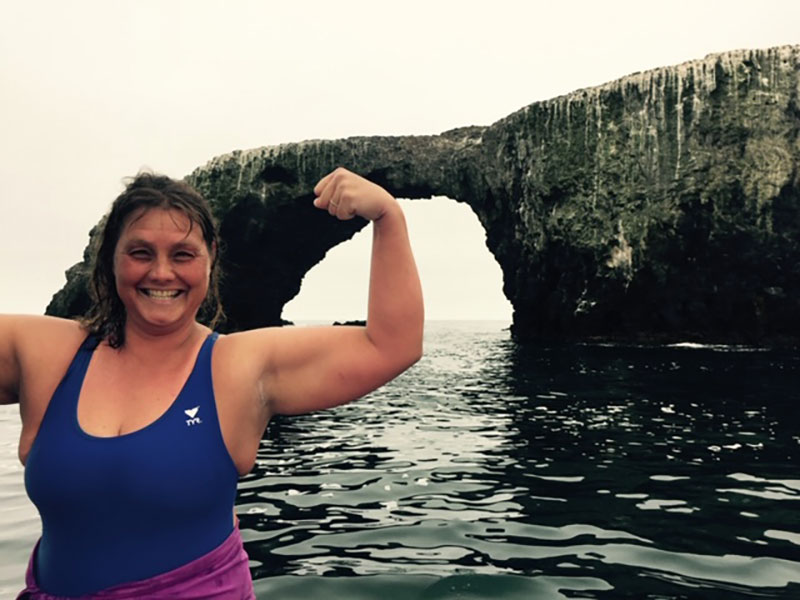Gubser's ability to roll with whatever comes her way isn't just a necessary skill for navigating the waves – it's part of her everyday life as a registered nurse.
"My brain is on, on those shifts," Gubser said of her job in the pediatric intensive care unit at UCSF Benioff Children’s Hospital. "Like, I can't make a micro mistake. It could be catastrophic for my patients."
But when Gubser steps into the surf, she said she gets to be present in a different way.
"The rhythmic movement of my stroke kind of lulls my brain into a kind of a rocking, kind of soothing space," she said. "And just I check out."
Gubser said there's nothing like swimming in the ocean to help her maintain a sense of perspective and focus because of its overwhelming size.
"When I feel confined, it's when the ocean is in charge. If there's a current that is pushing me in the wrong direction, I've just got to keep grinding and grinding and grinding and try to find the current break," she said. "If there are big swells out there, that can be really confusing. I'll go for a stroke, put my hand in the water, and it feels like there's no water underneath me. It's crazy. My body is just like, 'What happened?!' And you have to kind of just roll with it, literally."
Gubser said the key to overcoming feelings of confinement and isolation is to stay present enough to keep oneself calm.
"Panic is usually the issue that causes people to get into trouble, so I don't think about the 'what ifs.' I mean, you're a tiny little speck floating on top of the water, if you think about how big and vast the ocean is," Gubser said. "But that makes you feel so alive."
Gubser's story is part of Inspiration/Isolation, a new interactive audio feature created by reporters and producers at KQED.

To experience Isolation/Inspiration on Alexa, say “Alexa, open Isolation Inspiration.” You can also find it here on Amazon.

To experience Isolation/Inspiration on Google Assistant, say “Hey Google, talk to Isolation Inspiration.” You can also find it here in the Actions Directory.



